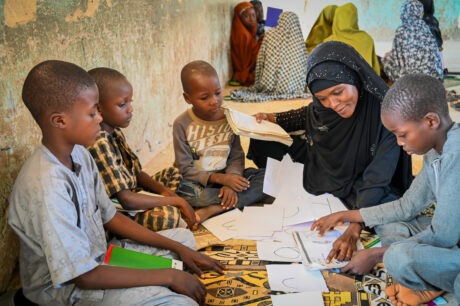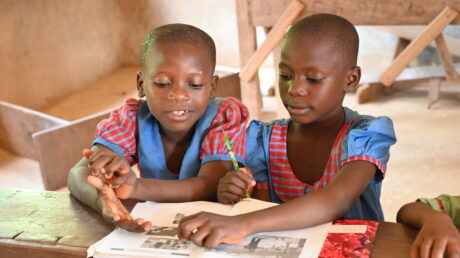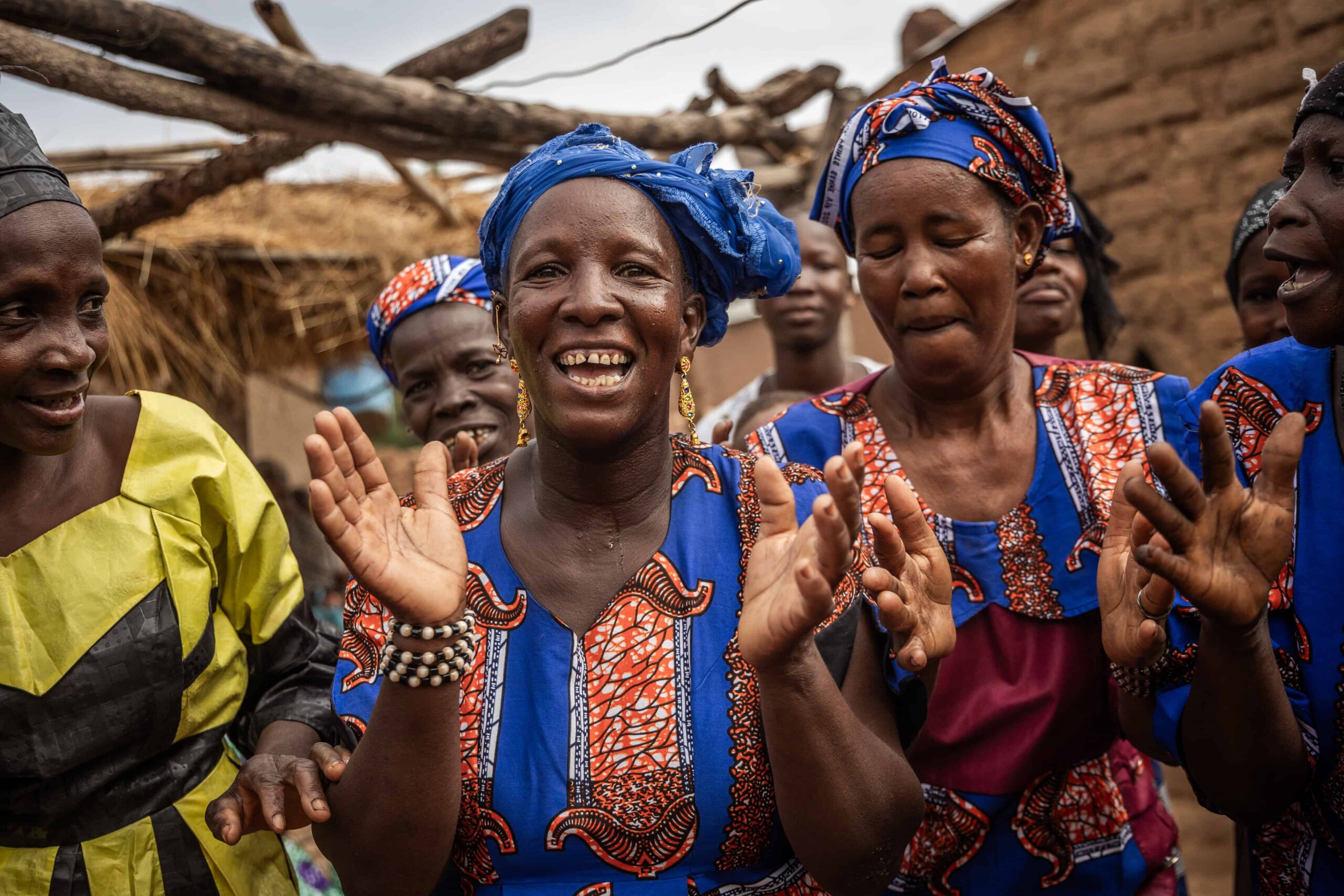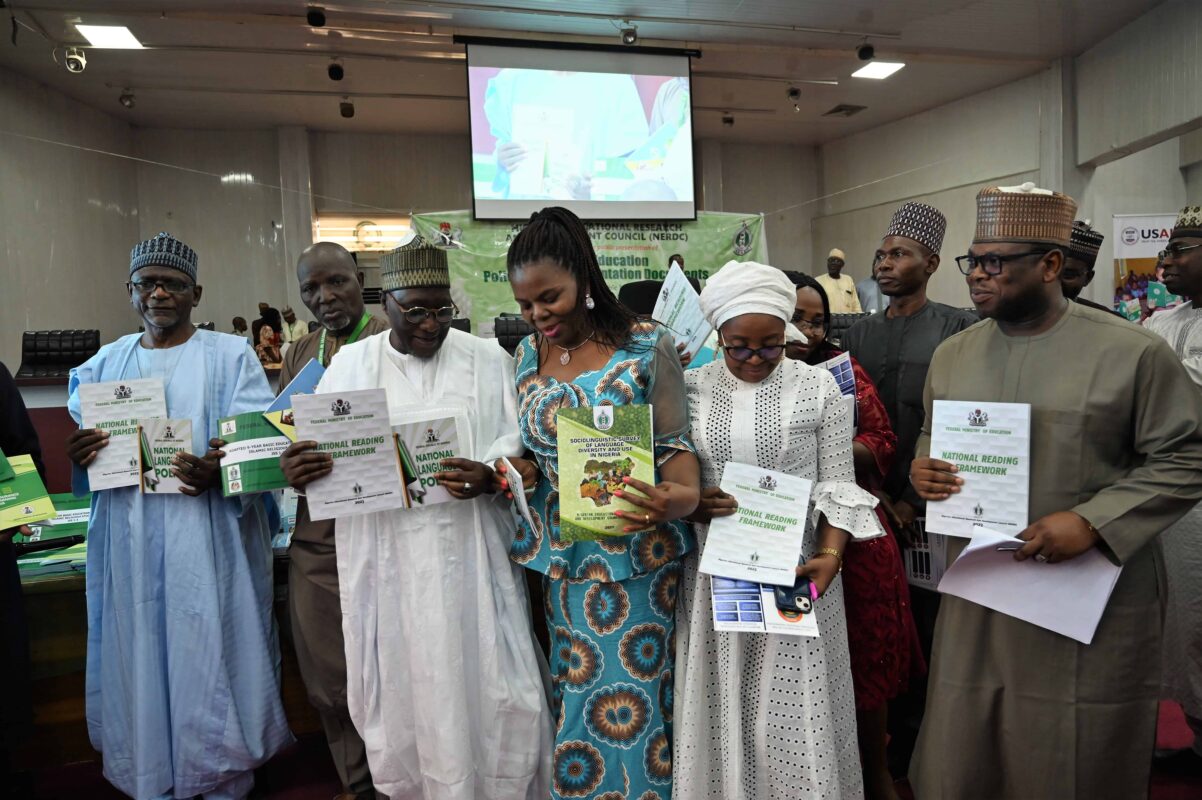Everyone rose when the Honorable Executive Governor entered the receiving hall. He and an entourage of officials moved swiftly through the room with press cameras trailing behind to welcome our delegation back to Sokoto.
As the Governor shook hands with Leland Kruvant, Président et chef de la direction de Creative, the Governor recalled a previous visit some years ago and expressed his gratitude for Creative’s ongoing work in the state.
I was heartened that, within a compressed day of meetings, the Governor pledged to release funding for early grade teaching and learning materials and his Highness, the Waziri of Sokoto, pledged full support for early grade reading on behalf of his Excellency, the Sultan. Council members of the Nigerian Califate also pledged to reinforce messages about the importance of financial investments in early grade reading to their communities.
These are important indicators of local commitment that make our LEARN to Read (APPRENDRE) project’s technical assistance approach possible.
A decade of progress in Nigeria
The path from direct implementation to technical assistance requires long-term investment.
Creative previously implemented USAID’s Northern Education Initiative and NEI Plus projects in Sokoto and Bauchi states that were touted as enormous successes. The projects provided teaching and learning materials, formation des enseignants, and monitoring and assistance of school support officers.
The uptake of new student-centered, structured lessons was high, and early grade reading assessments showed substantial improvement in student reading achievement before COVID. The formula for reading instruction in Hausa, Yoruba, Igbo, and English was working — reliably replicable with larger numbers of teachers and schools.
It made sense to shift the next project, APPRENDRE, toward technical assistance. LEARN would help the Ministry of Education and receptive state ministries adopt the historically successful approach.
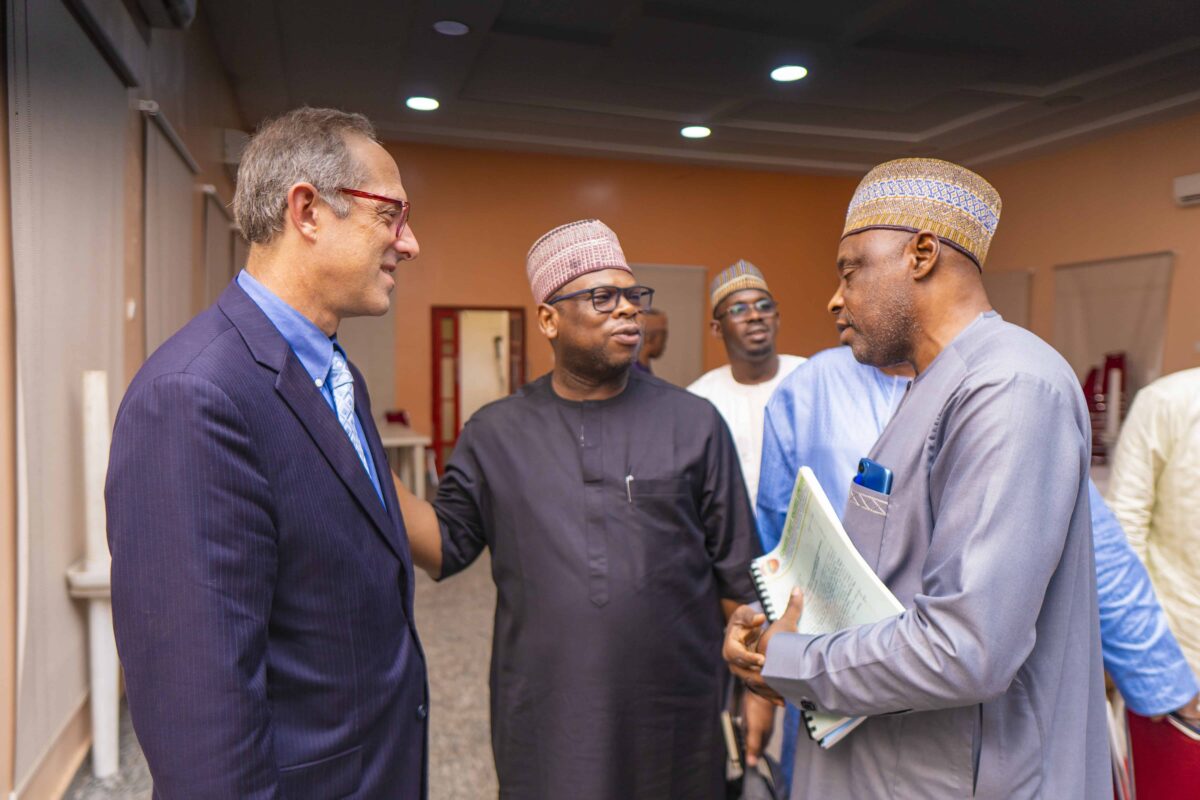
Passing the torch from direct implementation to technical assistance
This change has yielded important results. LEARN has helped the national government to adopt a National Reading Framework as well as central guidance for assessing and monitoring student reading performance. These are no easy tasks in a country with a strong federalist system in which most educational policies are determined at the state and local levels.
LEARN has also helped individual states build effective reading strategies into their own curricular guidance. In addition to Bauchi and Sokoto, seven new states have expressed interest in the approach and receiving on-demand support from the LEARN project.
Despite hurdles — like the pandemic creating an extended gap in programming and national elections diverting attention away from education — LEARN has supported local stakeholders to take ownership of this important literacy work.
This requires advocacy about the importance of early grade reading with new education officials, many of whom were just elected a few months ago, as well as guidance about how to shore up state-approved curriculum and teacher training to help children learn to read.
Challenges to moving towards technical assistance
Graduating to a technical assistance model is a great achievement and a sign of programs that have done well. Cependant, challenges are a part of the process.
Au Nigéria, Par exemple, states have struggled to provide new textbooks and maintain professional development continuity for teachers and school support officers. USAID and LEARN are continuing their longstanding relationship with governments to navigate these growing pains.
En même temps, it is individual state victories — such as financial commitments from new Governors, public pronouncements from traditional and religious leaders, and genuine progress in student reading outcomes — that build momentum for more states and local governments to follow similar paths for millions more children to learn to read.
